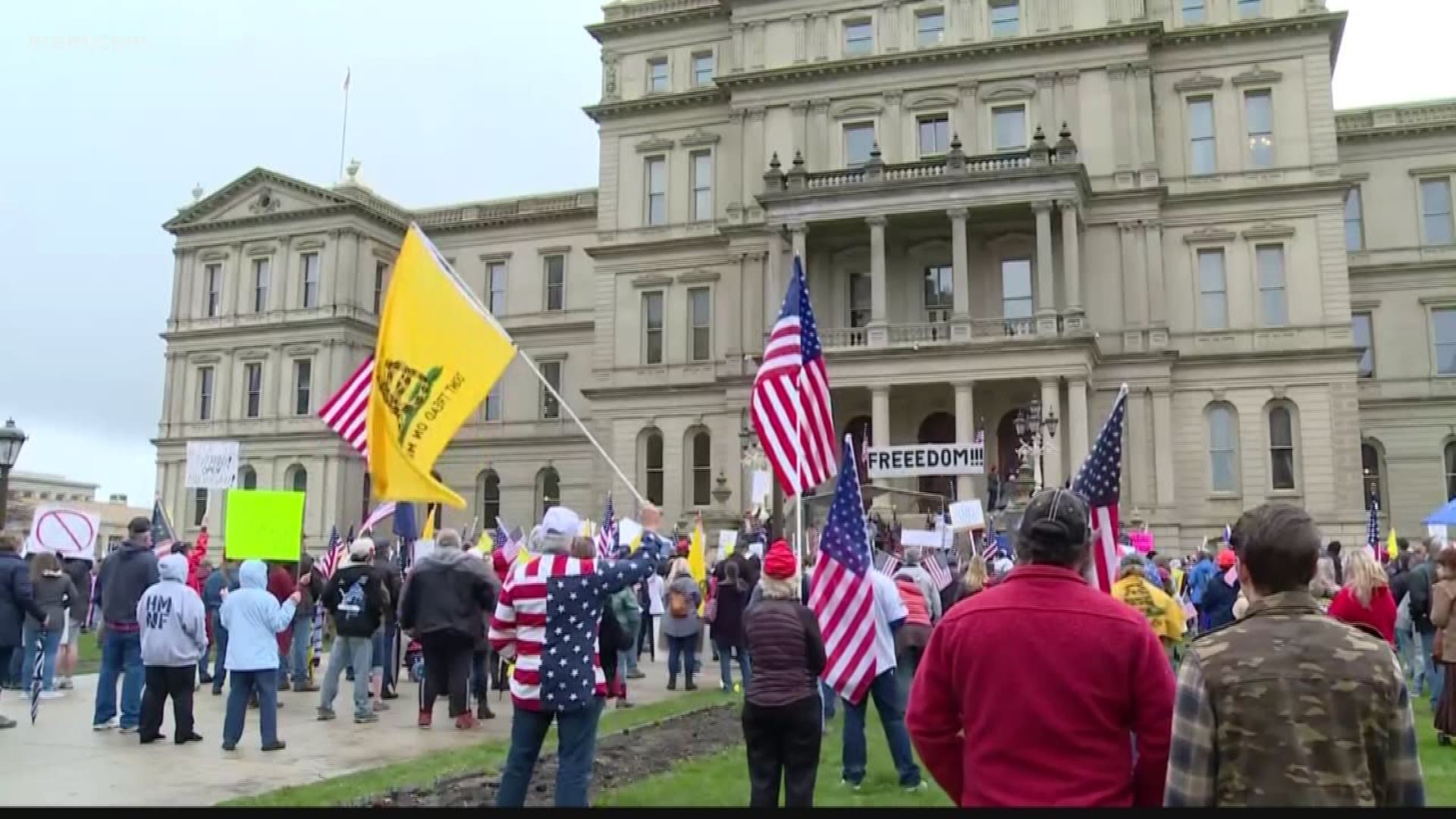“Unconstitutional.”
It’s a term that pops up more and more with each passing day in the time of the coronavirus.
Businesses have stayed closed.
People have stayed home.
For months now, the questions have continued about the effectiveness of state “stay at home” orders, and the potentially irreparable damage they could cause.
But when protestors and lawmakers alike call stay at home orders “unconstitutional,” is there any weight behind that claim?
KREM 2 News reached out to local educators in the Inland Northwest, who specialize in the study of Constitutional law: Professor Richard Seamon-- Professor of Law at the University of Idaho College of Law—and Dr. Cornell Clayton-- Director of the Thomas S. Foley Institute at Washington State University.
Seamon and Clayton both acknowledge that there is indeed a question of our own individual rights when it comes to these state-mandated restrictions.
"There's no question that these restrictions implicate several constitutional rights,” Seamon says. “The hard question is whether they violate them."
“And as is often the case,” says Clayton, “we sometimes jump from a reasonable discussion about public policy to a constitutional argument."
Implicating constitutional rights is not the same as violating them; and debating public policy is not the same as decrying unconstitutionality.
Seamon and Clayton share similar responses to the initial question: yes, they agree, it is legal for state courts to enforce stay at home orders, and the federal government supports the state court systems in these restrictions.
“No Constitutional right is absolute,” says Seamon. “The Supreme Court has specifically addressed restrictions on the movement of people for the purpose of addressing epidemics and serious health problems.”
RELATED: 'Freedom is the cure': Hundreds of Spokane protesters rally against stay-home order on May Day
“Abraham Lincoln once said that the Constitution is not a suicide pact,” Clayton adds. “It allows the Constitution to protect a civil society during periods of crisis."
Just look back to the year 1905, as smallpox ravaged the state of Massachusetts. More than 115 years ago, the US Supreme Court ruled that individual rights and liberties did not supersede a state’s responsibility to protect it’s citizens and eradicate a disease during emergency situations.
“The government may impinge upon these rights, provided two things,” says Clayton. “One is that the government action is in pursuit of a compelling state interest or a very important government purpose. And the Supreme Court and other courts have ruled in the past that preventing the spreading of a pandemic is one of those. Secondly, has the government pursued that compelling interest or purpose in a way that’s narrowly tailored? Does it impose unnecessary restrictions on freedoms? And so long as the government has done that, it will uphold these actions.”
Clayton brings up an important point: are the restrictions of our individual freedoms unnecessary? It’s a question Seamon says we should be vigilant in asking.
“We have to be sure that the government isn’t using this occasion to—for example—stifle religious freedom, or stifle the expression of views it doesn’t necessarily agree in,” Seamon says.
So far, Seamon says, the stay at home orders issued in Washington and Idaho are “measured, thoughtful, and considerate.” So far, he says, there aren’t many examples of these restrictions across the country in which any kind of speech, religious practice, or other specific right is targeted.
Clayton says that’s an important key.
“When you look at these orders, one of the things these court of laws will look at: does it target specific groups or religions? Or is it generally applicable? And if it’s generally applicable, the courts will have less anxiety about it.”
Court judges also want to make sure there is some kind of end-date for these restriction, or that elected officials continue to re-examine their restrictions over and over, to start phasing back these orders.
“There will be some point at which the courts will find that [these restrictions] are no longer reasonable,” Seamon says. “They’re going to need to be loosened as conditions improve, because there’s always a balance that needs to be struck.”
It remains to be seen how that line of balance will be walked for each state in terms of reopening—and recovery—but Clayton and Seamon each want to make sure we as a collective people shift our focus a bit during the waiting weeks and months ahead.
Clayton—for example—says there needs to be a very clear distinction from debating the “unconstitutionality” of these stay at home orders, and having a healthy discussion about public policy.
“I think it’s important to distinguish the difference between a perfectly legitimate and reasonable discussion about what’s prudent in terms of public policy with a crisis like this… And distinguish that debate from the constitutionality about these stay at home orders,” Clayton says. “People feel very passionate about this, and as is often the case, we sometimes jump from a reasonable conversation about public policy, into a constitutional argument. Most of these debates we’re having right now about whether we should open up our golf courses in Washington, fishing in Washington, curbside transitions for businesses… These are really questions about what's prudent public policy. It's not a question about 'Has the government usurped constitutional authority or violated Constitutional Rights in a fundamental way?"
And Seamon says his biggest concern is making sure we as a society navigate the dangerous terrain of disinformation and misinformation.
“One of the things that I’ve noticed on the internet is that there seem to be a lot more ‘constitutional law scholars’ than I was aware of,” Seamon says. “And I do worry about the misinformation that’s circulating, particularly with people who have agendas of their own, that don’t necessarily intend to be totally objective and accurate when it comes to what the law permits.”

